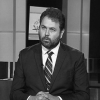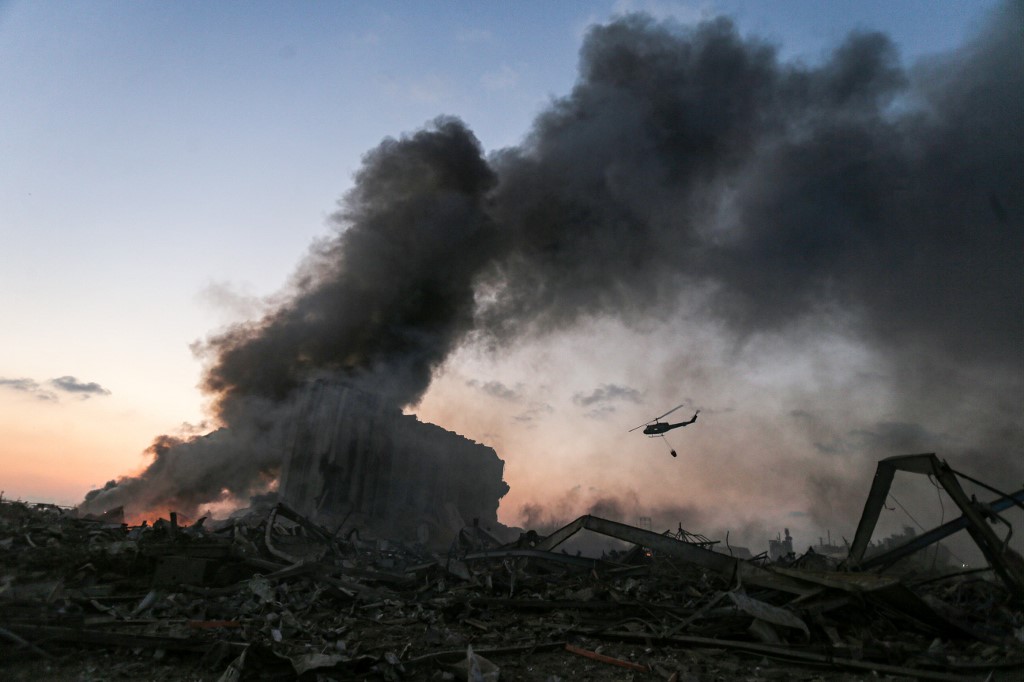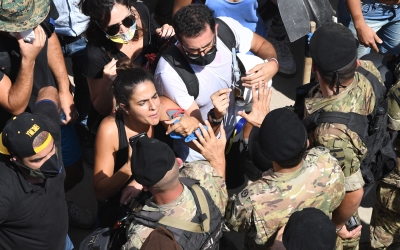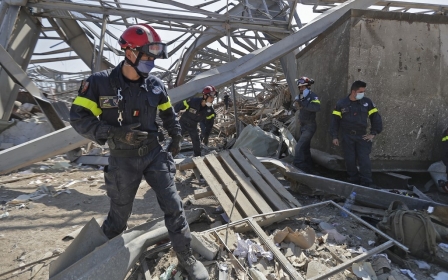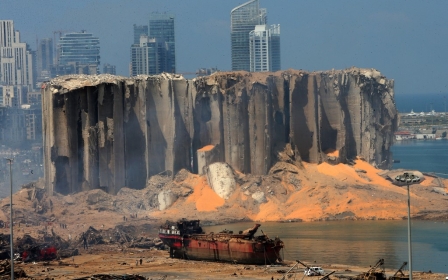Beirut port explosion: A year on, the trauma remains fresh
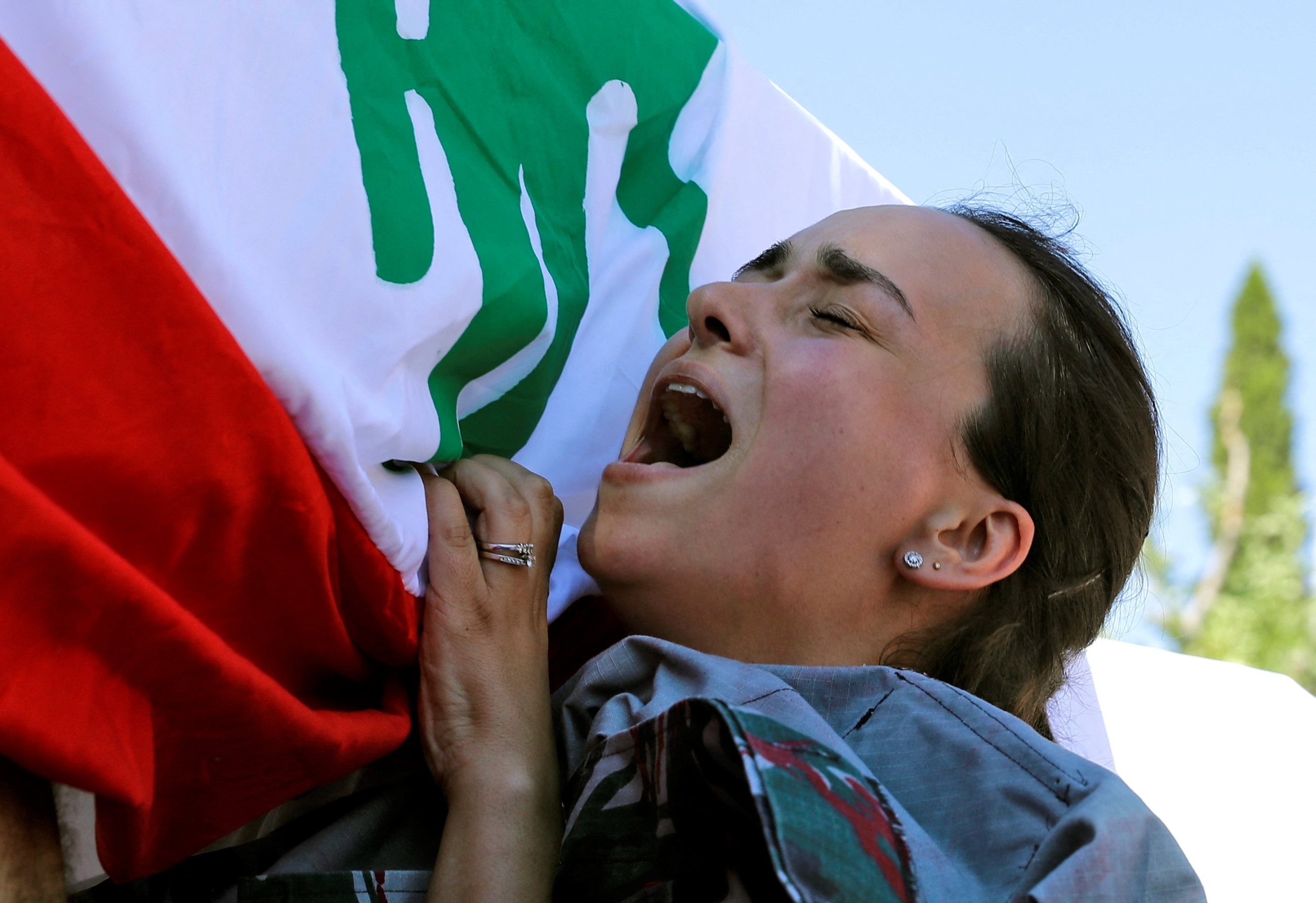
Commemorating the devastating Beirut blast means to commemorate what is still here, continuous and endless. Who among all those shaken by the massive August 2020 explosion has been able to wake from this nightmare? And yet, it was not a nightmare; it is our real life.
Far from constituting an obstacle to justice for the most direct victims of the explosion - alongside all the inhabitants of the bruised city - forgetting, while impossible, is a legitimate aspiration, a desire of emancipation.
The 4 August blast was an attack against a capital, against its people. But the enemy has not revealed its face
This dreadful event, which can be reduced to a couple of minutes in video - the rise of the mushroom cloud and the explosive boom - seems to have absorbed all others. Not only because of the trauma of the apocalyptic shock, the enormous scale of destruction, and the valley of tears, but above all, because it remains a devastating enigma. We know everything and nothing about what really happened.
Lebanon, mired in a financial collapse, political sclerosis, and the fallout from massive popular protests that erupted in October 2019, slipped into an enigmatic catastrophe on 4 August 2020. Its criminal nature does not conceal its labyrinthine character, condemning people to a state of constant uncertainty.
In a way, the famous questions of Enlightenment philosopher Immanuel Kant are everyone’s questions in Lebanon today. Kant asks: “what can I know?” Indeed, what can we know about those who caused this evil - an infernal whirlwind in which both the “radical evil” and the “banality of evil” are intertwined?
New MEE newsletter: Jerusalem Dispatch
Sign up to get the latest insights and analysis on Israel-Palestine, alongside Turkey Unpacked and other MEE newsletters
The banality emphasises the negligence of those responsible, who were aware - for years preceding the explosion - of the mass of ammonium nitrate piled up in the port of Beirut, just steps from the city centre. The notion of banality also applies to our experiences in Lebanon since the blast, with justice still not being meted out to the victims, or to the city as a whole.
Visible and invisible aspects
From Kant’s perspective “what can I know” relates to the observable world. But what about this appalling blast? As much as the explosion is visible in the photos captured and footage taken, its invisible aspect is also very much present, as the sound still rings in our ears one year on.
Can we ever be satisfied with an explanatory narrative based purely on empirical facts and logical deductions, or will we forever be forced to hypothesise as to what really happened? The 4 August blast was an attack against a capital, against its people. But the enemy has not revealed its face. Everyone wants and needs to see this face.
This confusion can only nourish the most anxious and aggressive attitudes - the deepest and most persistent suspicions against various segments of society, beyond general collective indignation against the “system”. In short, the explosion brought with it the potential for another explosion: the disintegration of the country itself, especially after citizens’ indignation was unable to trigger a large-scale, successful, popular mobilisation against this “system”.
By chance, the explosion affected the predominantly Christian neighbourhoods of Beirut harder than others, creating a sectarian dimension to the fallout. This type of sectarian inflammation crosscuts with other tensions, reformulating community cleavages, and begging another thorny, but perhaps valid, question: which communities have been most affected by the economic crisis?
The assassination of a city
As Susan Neiman, one of the most profound philosophers of our time, noted in Evil in Modern Thought, modernity tends to make the face of the enemy more and more invisible: “Before the invention of automatic weapons, you normally had to see anyone you hoped to kill. Since the development of the process that began with the American Civil War, you no longer need to do so. Technologically and, even more important, psychologically, this creates opportunities for destruction once available only to nature.”
That said, there is a deep difference between a faceless drone attack and a face-to-face encounter between a pilot and individual victims - and when we look at the 4 August blast, we can only manage to track down the enemy by relying on our intuition and the insufficient evidence at hand. While the catastrophe adopts an image of “artificial natural destruction”, a random event that could have easily happened any other day, we are faced with endless questions.
Whatever one says and whomever one accuses, we remain prisoners of this frantic reflection, this infinite flood of possibilities - of what we already knew before, and what we will never know. It will never be clearly revealed who was behind this infernal destruction in Beirut on a hot summer day; the assassination of a port and a city.
To end with Kant’s other critical questions: “What must I do” and “what may I hope”? The enemy is not easily identifiable, but he is out there somewhere. We cannot accept the framing of 4 August 2020 as a natural or random disaster. When it comes to our hopes, we must learn to forget a part of what happened - expel it from our daily lives. But in the absence of a general emancipation project for the Lebanese people, the very horizon of hope itself remains uncertain.
The views expressed in this article belong to the author and do not necessarily reflect the editorial policy of Middle East Eye.
Middle East Eye delivers independent and unrivalled coverage and analysis of the Middle East, North Africa and beyond. To learn more about republishing this content and the associated fees, please fill out this form. More about MEE can be found here.


